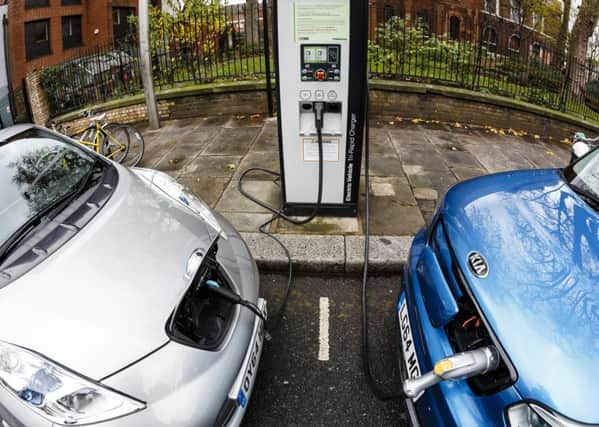Drivers of zero-emission cars could be given green number plates and incentives


The Department for Transport has launched a consultation on plans to give special licence plates to cars which conform to the highest environmental standards.
This will make them easily identifiable to local authorities who want to promote the use of zero-emission vehicles through schemes such as allowing drivers to use bus lanes or charging them less for parking.
Advertisement
Hide AdAdvertisement
Hide AdThe measure is part of the UK government’s £1.5 billion strategy to clean up road transport.
Special number plates have been trialled in Ontario, Canada, with drivers of electric vehicles given free access to toll lanes and high occupancy vehicle lanes. The city subsequently saw an increase in electric vehicle registrations.
Transport Secretary Grant Shapps said: “The UK is in the driving seat of global efforts to tackle vehicle emissions and climate change and improve air quality, but we want to accelerate our progress.
“Green number plates are a really positive and exciting way to help everyone recognise the increasing number of electric vehicles on our roads.
“By increasing awareness of these vehicles and the benefits they bring to their drivers and our environment, we will turbo-charge the zero-emission revolution.”
Elisabeth Costa, senior director at the Behavioural Insights Team, said: “The number of clean vehicles on our roads is increasing but we don’t notice as it’s difficult to tell clean vehicles apart from more polluting ones.
“Green number plates make these vehicles, and our decision to drive in a more environmentally-friendly way, more visible on roads.
“We think making the changing social norm noticeable will help encourage more of us to swap our cars for cleaner options.”
Advertisement
Hide AdAdvertisement
Hide AdAmong a number of potential plate designs, three of the most likely include :
n A fully green number plate with black lettering
n One with the usual colours and a green flash on the plate
nOne with a green dot or symbol.
Mr Shapps recently announced that he has doubled funding for electric vehicle charging points on residential streets.
Data published by the Society of Motor Manufacturers and Traders shows 25,097 purely electric new cars were registered during the first nine months of the year, more than double last year’s figures.
Adventurer Ben Fogle, ambassador for Go Ultra Low, which campaigns for people to consider buying an electric vehicle, said: “As someone going through the process of getting an electric car, the potential to benefit from extra incentives only adds to the appeal.
“Drivers of electric vehicles could enjoy even smoother journeys, as it becomes easier for local authorities to incentivise EV ownership, through measures such as allowing them in bus lanes and access to free parking.
“These come on top of existing benefits such as helping to improve local air quality, running costs from as little as 2p per mile, reduced service maintenance and repair costs, and exemptions from congestion and clean air zone charges.
“As the list of reasons to choose an EV becomes even longer, there really is no better time to consider making your next car electric.”